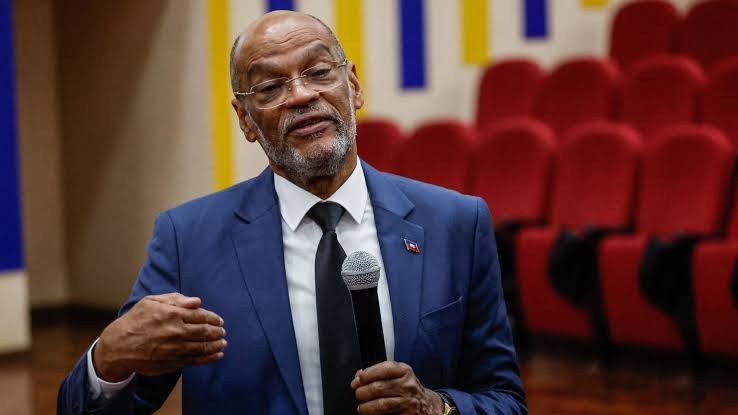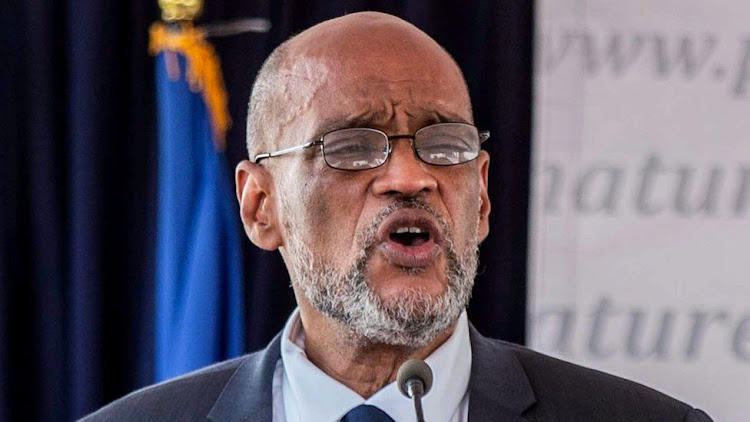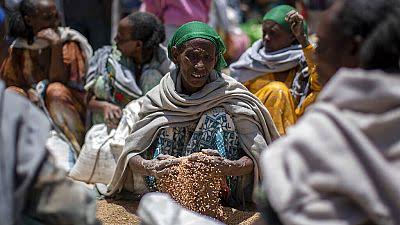
Faith Nyasuguta
Haiti’s Prime Minister, Ariel Henry, has succumbed to the intensifying pressure and surging violence within the country, formally declaring his resignation amidst a backdrop of political turmoil. The announcement follows a meeting of regional leaders in Jamaica, seeking a viable transition plan for Haiti.
As of now, Henry finds himself stranded in Puerto Rico, prevented from returning home by armed gangs. In a video address announcing his resignation, he implored the Haitian populace to remain calm during this critical juncture.
“The government that I am leading will resign immediately after the installation of [a transition] council,” stated Henry. Expressing gratitude to the Haitian people for the opportunity to serve, he urged citizens to contribute to the swift restoration of peace and stability.
Henry had been at the helm of the nation on an interim basis since July 2021, following the assassination of former President Jovenel Moïse. However, his leadership faced growing criticism, particularly for the repeated postponement of elections under the pretext of necessitating enhanced security.
The delay in electoral processes raised questions among many Haitians about the legitimacy of Henry’s extended tenure without an elected president. Additionally, the streets of Port-au-Prince, the Haitian capital, had become volatile, controlled by heavily armed gangs demanding the resignation of the unelected prime minister.
The region, including Port-au-Prince, had been placed under a month-long state of emergency, coupled with an extended curfew in response to escalating tensions.
Henry’s recent visit to Kenya, intended to finalize an international security force deployment to combat violence, coincided with attacks on police stations and the storming of two major prisons by a coalition of gangs. Attempts to land his plane in Haiti were thwarted due to sustained attacks at the international airport.
The anticipated resignation of Henry has been a topic of discussion for several days. The Caricom group, representing Caribbean nations, was unequivocal in its stance that Henry’s continued leadership posed an obstacle to Haiti’s stability. The group insisted on his resignation to pave the way for a transition to a council.
Initially, the White House had favored Henry’s return to Haiti to oversee the transitional process. However, the escalating violence in the country prompted a change in perspective, with both the US state department and regional neighbors withdrawing their support for Henry.
Without backing from the US and regional allies, Henry found himself with no alternative but to step down. Although expressing a desire to return to Haiti, the prevailing security conditions must improve before he can do so, as emphasized by the US, which participated in the talks in Kingston.
A senior US official revealed that Henry had initially decided to resign on Friday but delayed the formal announcement to facilitate ongoing talks.
US Secretary of State Antony Blinken committed an additional $100 million to the 1,000-strong UN-backed security force, which Kenya is expected to lead in Haiti. This brings the proposed US contribution to the security force to $300 million, with an additional $33 million allocated for humanitarian aid.
Following the meeting in Kingston, Irfaan Ali, Chairman of the Caricom group and President of Guyana, acknowledged Henry’s resignation upon the establishment of a transitional presidential council and the appointment of an interim prime minister.

The transitional council is mandated to swiftly appoint an interim prime minister and comprises two observers and seven voting members, including representatives from various coalitions, the private sector, civil society, and a religious leader. The council’s primary objective is to facilitate the transition process and set the stage for Haiti’s first elections since 2016.
Haiti finds itself at a critical juncture with Ariel Henry’s resignation marking a pivotal moment in the nation’s efforts to restore stability and pave the way for democratic elections.
The international community, led by the US and regional allies, is poised to support Haiti in its transition, both in terms of security and humanitarian aid. The road ahead remains challenging, with the need for concerted efforts to address the root causes of unrest and set the stage for a more stable and prosperous Haiti.
RELATED:




